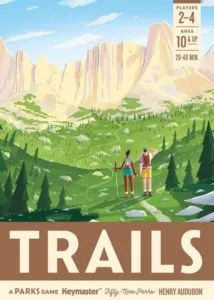 PARKS is one of the board games responsible for ushering in the current trend of Pleasant Nature Games. Its gorgeous artwork, tactile components, and simple yet rewarding gameplay set the tone for a wave of games trying to replicate that success. Hundreds of games in this space have come out since PARKS, but it has managed to weather that tide and stay relevant to this day.
PARKS is one of the board games responsible for ushering in the current trend of Pleasant Nature Games. Its gorgeous artwork, tactile components, and simple yet rewarding gameplay set the tone for a wave of games trying to replicate that success. Hundreds of games in this space have come out since PARKS, but it has managed to weather that tide and stay relevant to this day.
TRAILS, from the same designer and publisher, is an attempt to re-capture that lightning in a much smaller bottle. Does it manage to re-ignite that spark, or is it yet another hanger-on destined to be forgotten?
TRAILS is a set collection and resource management game for 2-4 players, that takes 20-40 minutes to play.
Gameplay Overview:
All players start at one end of the Trail, a line of action spaces randomly laid out during setup. On your turn, you can move your hiker one or two spaces down this Trail, then take the action on that space. Most of the Trail’s actions either gain you one of the game’s three resources or convert your resources to a different type. A fifth space instead allows you to spend a resource of any type to take a Photograph, earning you a card worth a variable number of points and Birds.
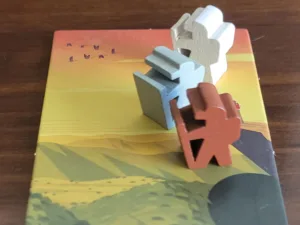
The most interesting action spaces, however, are the Trail Head and Trail End—located, conveniently enough, at the head and the end of the Trail. When you reach one of these spaces, you turn your hiker around to face the other direction and get the opportunity to purchase Badge cards. Badges cost resources to acquire but grant you a variety of benefits during or after the game—discounts on future Badges, endgame points for specific Badge cards, and so on.
Additionally, when you reach Trail End, you will move the Sun token one space towards the Trail Head. As the Sun moves off spaces on the Trail, those tiles will flip over, revealing more powerful actions for the rest of the game. The Sun also works as the endgame trigger—once it hits the final space of the Trail Head, all other players take one final turn, and the game ends.
Players then count up the points earned from Badges and Photographs; the player with the most Birds (on Photographs or Badges) earns an additional four points. The player with the most points wins.
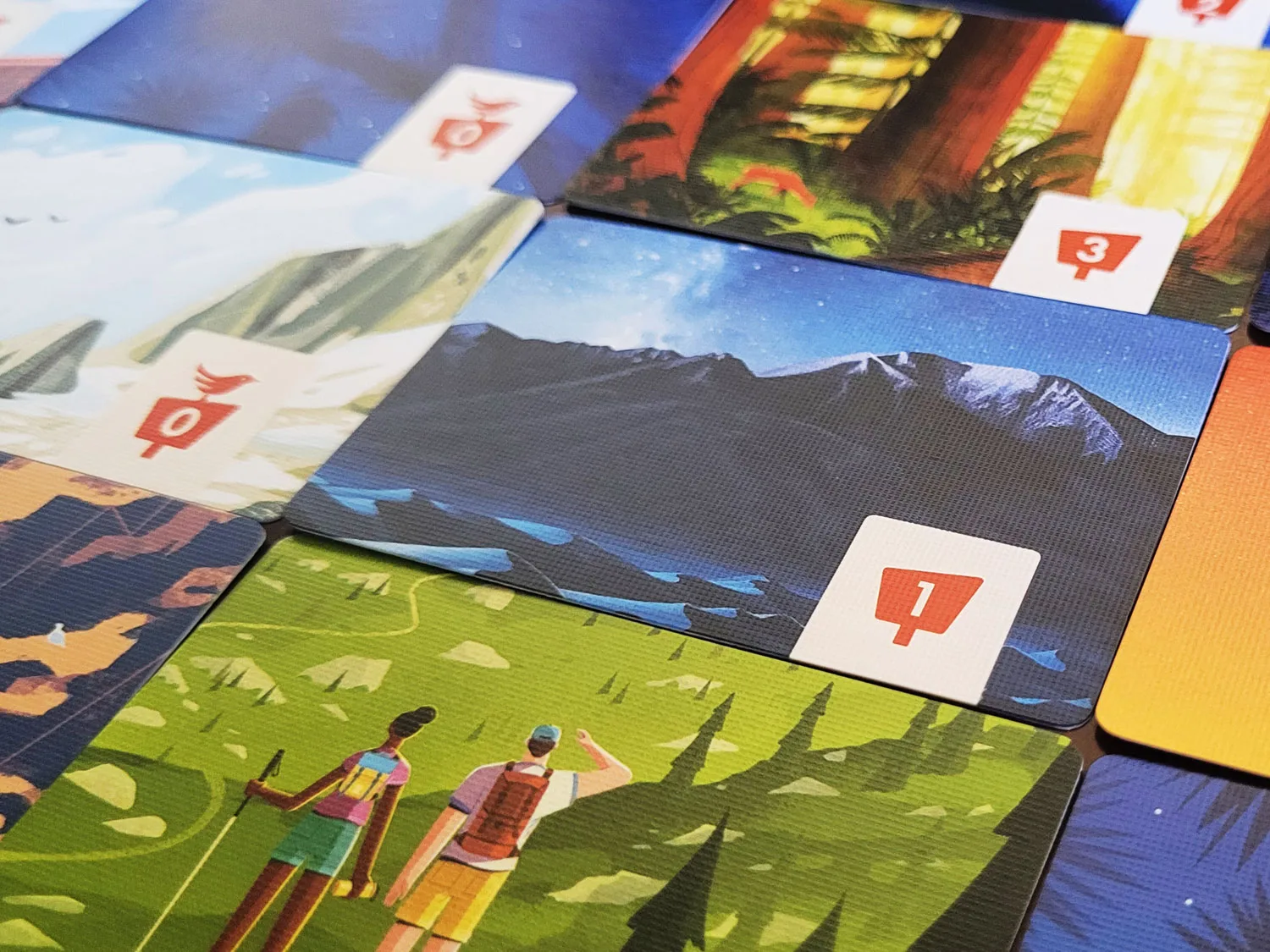
Game Experience:
TRAILS is… fine. It’s easy to teach, quick to play, and doesn’t outstay its welcome. Unfortunately, aside from being playable, I find there is very little to recommend about TRAILS, and I would never choose to play it over other games in my collection.
Let’s start with the good—TRAILS looks incredible on the table. Like its big sibling, the art is commissioned from the 59 Parks Series, and the gentle, almost papercraft look is both inviting and stunning. The art on the Badges isn’t as nice, but the badge icons are still pleasingly artistic, and the style fits with the game’s overall aesthetic.
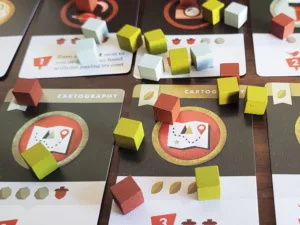
Unfortunately, as joyous as TRAILS is to look at, it isn’t nearly as joyous to play. It’s not a bad game, but every aspect of its design is serviceable without being memorable. The decision-making, while not un-engaging, is both too simple and too repetitive to develop any real interest. Almost every turn boils down to “get this resource or get that resource,” and when you only have five choices of Badge to work toward at any given time, that decision is frequently non-existent.
At the same time, TRAILS is just demanding enough that it doesn’t work as a social time-spender like many classic card games. Your choices are simple, but on each turn you must check the Badge cards on both sides of the Trail and in your hand, your existing resources, your already-earned Badges, and the state of the Trail itself, before you take a course of action. Crucially, parsing this information doesn’t make the choice more difficult, it just adds more steps between the start of your turn and the end.
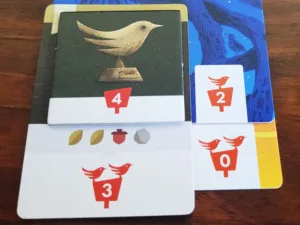
These issues are worse when combined with TRAILS’ player interaction, of which there is none whatsoever. Hikers don’t block spaces, so your choice of which action to take is never affected by other players. A player might take a Badge you want, but that only happens by accident, which makes it annoying rather than interesting. And while players are technically competing to earn the most Birds, the reward is so paltry that you almost never think about it. In reality, the time from the end of your turn to the beginning of your next turn is completely devoid of interest—which makes your own turn even less interesting as a result.
Even TRAILS’ most innovative elements on paper add little to the experience in practice. The fact that the Trail changes over the course of the game sounds cool, and the visual effect is great, but the gameplay impact is extremely minor. Moving along the Trail seems interesting, but it mostly just cramps your decision space down to obvious binary choices. And, while there are additional wrinkles to the design (a one-time-use canteen that lets you move as far as you want, a bear that lets you take an extra action if you encounter it), these wrinkles add more minutiae to remember than they add decisions to consider. The longer I played TRAILS, the more I found its various rules to be pointless impediments, rather than fun design elements.
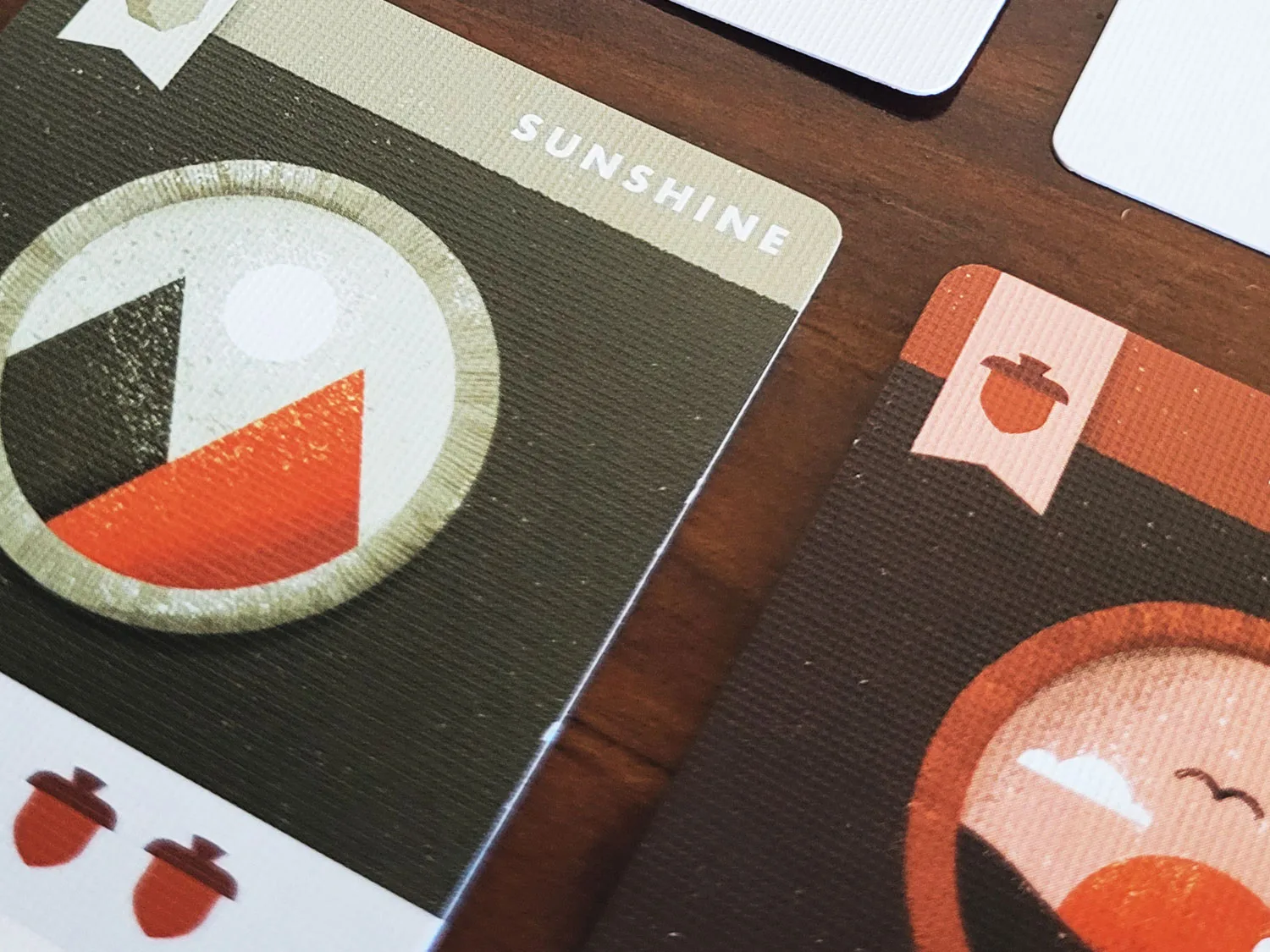
Final Thoughts:
TRAILS is a functional and visually arresting set of mechanics, but it’s too fiddly to be breezy, too plain to be exciting, and too light to leave much of an impact. You could do much worse than TRAILS, especially at its price, but you could do a lot better too.
Final Score: 2.5 Stars – A fast and fully forgettable filler.
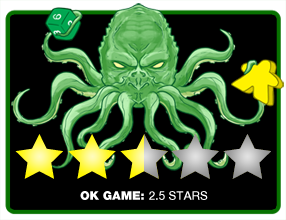 Hits:
Hits:
• Beautiful artwork
• Fairly easy to teach and play
• Very affordable
Misses:
• Uninteresting decisions
• Overly fiddly for its weight
• No “hook” to make you want to play again






















